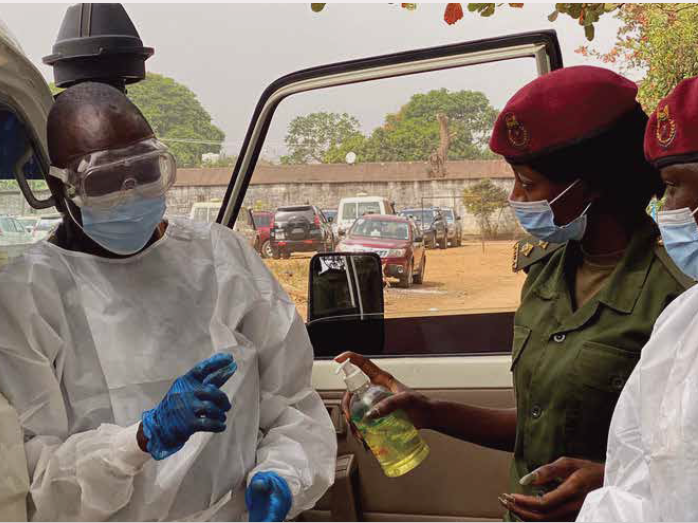WHO statistics revealed that Sierra Leone recorded 6,343 confirmed cases of Covid-19 with 121 deaths and a total of 163,085 vaccine doses administered between 3rd January 2020 and August 2021. BudgIT Sierra Leone, in collaboration with other civil society partners, under the Covid-19 Transparency and Accountability Project (CTAP), had a series of engagements with community radio programs (BudgIT hour) in Freetown, Makeni, Port Loko, Bo, and Kenema where people freely express their views on pertinent issues surrounding Covid-19 in their communities.
We received 40 phone calls during the radio sessions and captured a range of people’s perceptions and opinions on utilizing covid-19 emergency funds. We also captured human-angle stories during our citizens’ engagement sessions in the Northern, Sothern, Eastern, North-West, and Western Area regions.
The stories captured gave us an insight into the circumstances of Covid-19 victims/survivors. We also engaged front-line workers who expressed dissatisfaction with their working conditions. “We have been working for months and putting our lives on the line, yet the government has refused to give us a risk allowance.”
A year after the first COVID-19 case was reported in Sierra Leone, the impact has been disastrous on individuals and small businesses who are just recovering from the effects of the 2016 Ebola crisis, which killed almost 4,000 people in Sierra Leone and sickened some 10,000 more. The BudgIT 2015 Ebolafundwatch report revealed the mismanagement of emergency funds in the country. Many in Sierra Leone are concerned about the lack of transparency in the disbursement of COVID-19 emergency funds.
An anonymous health worker in the Port Loko community shared her experience working in the health center during the pandemic. “The work we are doing is difficult because we’re putting our lives on the line, and we don’t get paid every month; despite this, we keep working because we’re trying to save lives. It has not been easy for any of us”. The health worker contracted the covid 19 virus while on duty and expressed concerns over the lack of personal protection equipment (PPE) and proper training when the outbreak started. As a health worker and Covid-19 survivor, the respondent claims she did not receive the government’s economic support or financial assistance. According to her, health workers are restricted from speaking about the distribution of Covid-19 resources without permission from their supervisors.
